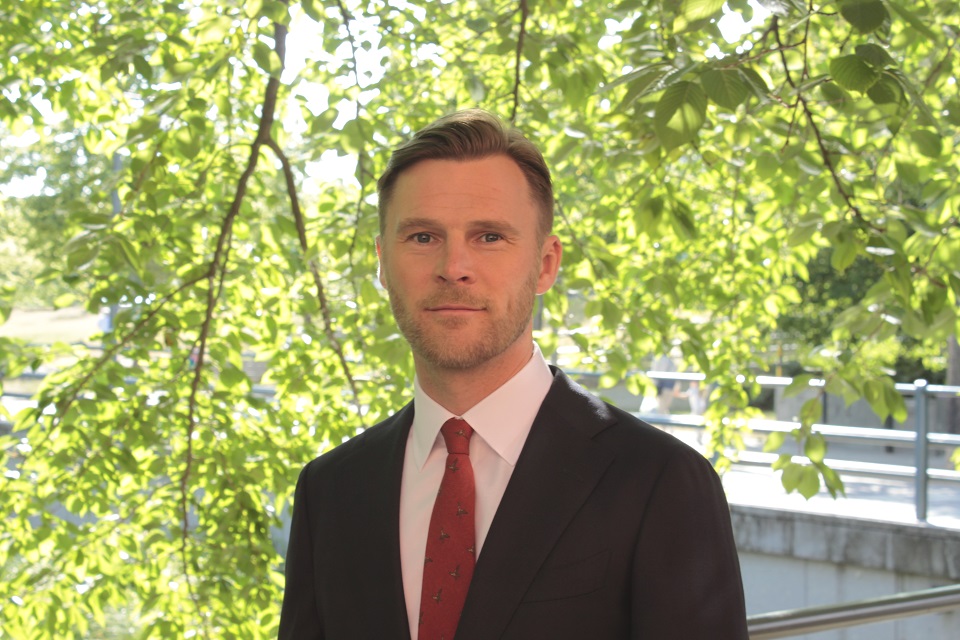Huge aerial attacks on civilians and inflammatory remarks show us Moscow is not serious about peace: UK statement to the OSCE
UK Chargé d’Affaires, Deputy Ambassador James Ford, condemns Russia's intensification of attacks against civilians in Ukraine, including its largest aerial assault of the war. This and inflammatory comments that run counter to Russia's international commitments are further evidence that Moscow is still not serious about peace.

Thank you, Madam Chair. It is now nearly four months since Ukraine agreed to the US proposal for an immediate and unconditional ceasefire. By contrast, Russia has not only refused to accept the proposal but has continued to intensify its attacks against Ukraine.
In fact, since direct talks began on 16 May, Russia has launched its biggest aerial attacks of the war.  It broke its shameful records again at the start of this week, when it launched more than 500 aerial weapons at Ukraine.
As well as being the most intense aerial attacks of the war, these recent assaults have also been among the most deadly for Ukraine’s innocent civilians. The attack on the Dnipro region on 24 June killed 20 civilians, left more than 270 others wounded and damaged schools and hospitals. And the horrific attack against Kyiv on 16-17 June, which destroyed a civilian residential building, killed 30 civilians and left a further 172 people injured. This was the second deadliest attack on Kyiv since the full-scale invasion began. So far in 2025, Russian attacks have killed more than 1000 civilians in Ukraine.
These are not the actions of a government that is serious about peace. They are the actions of those who believe they can take advantage while the world is distracted by events elsewhere. It is our collective responsibility here to dispel this notion, to remind them that the world is watching and to ensure that Moscow understands that there will be a cost for frustrating peace and attacking innocent civilians.
Madam Chair, when it comes to peace, we have learnt to assess Russia’s actions rather than Russian rhetoric. But if we needed further evidence that Moscow is not currently serious about compromise or ending the war, we can look at the recent comments made by the President of the Russian Federation, as our Ukrainian colleague also highlighted.
On 18 June he said that, if Ukraine did not agree to Russia‚Äôs terms, ‚Äúwe will achieve our goals by military means.‚ÄĚ On 20 June he said that ‚Äúthe¬†Russian and¬†Ukrainian peoples are essentially one people. In¬†that sense, we see Ukraine as¬†ours.‚Ä̬†He also described as a long-standing principle that ‚Äúwherever the¬†foot of¬†a¬†Russian soldier steps is Russian land.‚ÄĚ
Clearly, such statements run directly counter to the Helsinki commitments to which we have all agreed. And, alongside the escalation in attacks against Ukrainian civilians, they underline Moscow’s lack of seriousness about peace talks.
Madam Chair, as the UK ‚Äď along with the vast majority of participating States here at the OSCE ‚Äď we continue to call on Russia to agree to a full, immediate and unconditional ceasefire to create the space for negotiations on a framework for a just and lasting peace.¬†Regrettably, we see no evidence that Russia will engage meaningfully without further pressure to do so. We are therefore ready to act with partners to introduce new sanctions if Moscow continues to ignore these widespread calls for a ceasefire. Thank you.